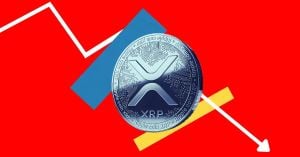The political environment in Ukraine is heating up as President Volodymyr Zelensky faces mounting skepticism about his future leadership. Recent statements made by Russian President Vladimir Putin have drawn attention to the stark differences between Zelensky's approval ratings and those of former Ukrainian military leader Valerii Zaluzhny.
During his interview with journalist Pavel Zarubin on February 24, Putin made allegations asserting Zelensky is a "toxic figure" for the country, claiming his approval rating is currently "twice lower" than Zaluzhny's. This assertion raises significant questions about Zelensky's ability to maintain his position amid growing discontent.
Specifically, Putin stated, "Zelensky is toxic for Ukraine. He has cornered himself by banning negotiations with Russia," indicating the perceived consequences of Zelensky’s current policies, particularly his refusal to seek diplomatic solutions with the Kremlin. According to Putin, this has not only affected his standing among the military but has also damaged public perception.
Putin went on to predict, "There is absolutely no chance for Zelensky to win elections," reflecting his view on the effectiveness of the Ukrainian leader's governance as the nation continues to face challenges stemming from the conflict with Russia. He underscored the apparent division growing within Ukrainian society and its military, attributing these fractures directly to Zelensky's presidency.
Public opinion surveys reflect this discontent, with different polls providing varying ratings for Zelensky and Zaluzhny. For example, according to polling conducted by the Sociological Group "Sotsis" earlier this year, Zelensky had the trust of approximately 40.8% of Ukrainians—placing him third among political figures, with Zaluzhny leading at about 71.6% of respondents indicating support for him.
Putin stated, “It’s important what his rating is; it’s 50% lower than his nearest political rival,” emphasizing the significant challenge Zelensky faces. These statistics highlight the shifting political dynamics and growing preference among Ukrainians for Zaluzhny, who is currently representing Ukraine as the ambassador to the United Kingdom.
Adding to the complexity, former U.S. President Donald Trump recently commented on Zelensky's precarious political position, indicating his approval rating could be as low as 4%, something Zelensky himself has dismissed as disinformation. Zelensky claimed he enjoys the support of 65% of the population, but many observers remain skeptical of these figures, particularly as they come against the backdrop of strategic military failures and diplomatic deadlocks.
Interestingly, Putin suggested, “We are interested in keeping Zelensky in power—he’s corrupting the regime,” signaling Russia's own strategic preferences amid the conflict. This reflects the Kremlins’ interest not just in who leads Ukraine, but how their governance can impact broader geostrategic designs.
Putin's remarks hint at Russia's desire to leverage Zelensky’s declining popularity as it seeks to influence political dynamics within Ukraine. At the same time, this opens the door for Zaluzhny to be seen as a viable alternative either for restoration or continuity depending on the eventual developments between the two nations.
Reflecting on the broader political engagements, Putin referenced the notion of European forces as potential peacekeepers. He stated, “It would be beneficial for Ukraine if Zelensky were to step aside, and advantageous to Russia if he remains.” This highlights the multifaceted national and international calculations at play.
Whatever the outcome, the stakes are immensely high—not only for Zelensky and Zaluzhny but for the overall stability of Ukraine, which grapples with internal discord and the relentless pressures of external conflict. The upcoming elections could very well redefine the national narrative and Ukraine’s path forward amid one of the most challenging periods of its recent history.



